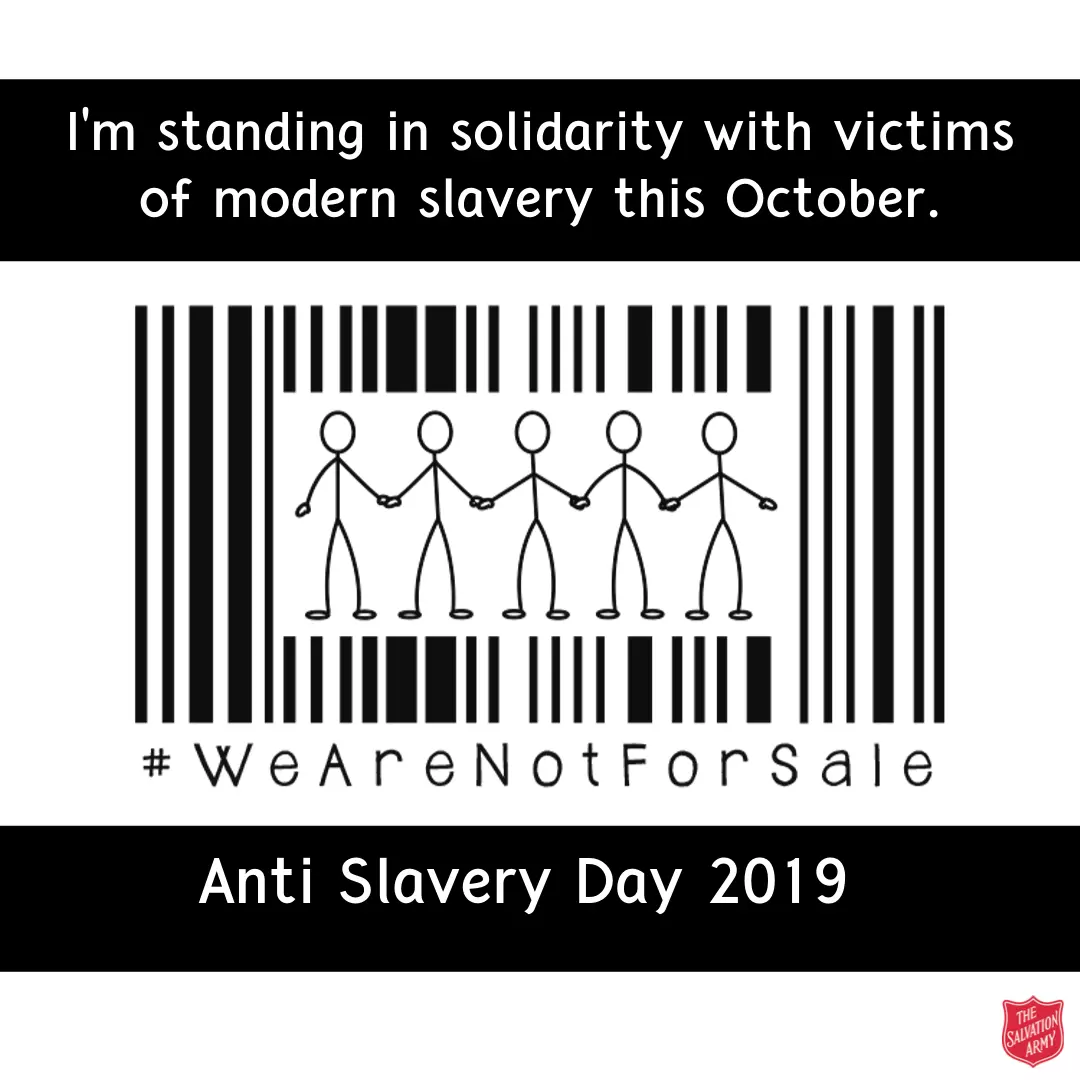Steep rise in British people forced to work as slaves
published on 14 Oct 2019

There has been a 58% rise in British nationals needing support after being rescued from slavery according to a new report by The Salvation Army released ahead of Anti-Slavery Day on 18 October.
Over 12 months, 136 British nationals needed help from The Salvation Army’s network of safe houses and outreach workers making them the fifth most common nationality accessing the organisation’s specialist support.
The report, which includes evidence from Salvation Army referral officers, found that the rise in British victims was likely to be down to gangs trafficking drugs into rural areas, a practice known as ‘County Lines’. Files also revealed a worrying new trend called ‘cuckooing’ where dealers take over a vulnerable person’s home as a local base and manipulate them into working for them.
Of the 136* British modern slavery victims supported last year:
- 96 were victims of forced labour, which includes being forced to sell drugs but also manual labour, such as farm work
- 30 were forced into sexual exploitation
- Nine were trapped in domestic servitude
*136 also includes one victim whose primary exploitation remains unclear due to the complexity of the individual’s experience.
To help the public recognise and report concerns about modern slavery, The Salvation Army is launching a temporary tattoo.
Taking the form of a barcode with the slogan #WeAreNotForSale, the public can buy, wear and share the tattoos around Anti-Slavery Day (Friday 18 October). Profits from these tattoos will pay for additional support for modern slavery victims.
Major Kathy Betteridge, The Salvation Army’s Director of Anti Trafficking and Modern Slavery, said:
“It’s appalling that anyone is forced to work as a slave whether a British national or a victim from across the world.
“Our report shows that gangs target vulnerable people, often with mental health issues to act as drug runners, or to move cash. However, people are also being forced to work as slaves in places like farms, car washes, and even nail bars.”
Thanks to our government contract, we are able to offer safe houses and outreach support services for victims. Referrals to these services are up by 21% on last year but we know there are more people out there who we have yet to reach.
“By wearing the tattoo, you will help remind people to be aware of the signs that someone could be working as a slave near to you.
“If you suspect someone is being forced into slavery, call our confidential referral helpline on 0300 303 8151 anytime, day or night.”
The report also showed a total of 2,251 people from 99 different nationalities accessed Salvation Army specialist services within a 12 month period. Of these 1,247 were women and 19% of whom were pregnant or thought they were.
In addition to the Government contract, The Salvation Army offers grants to help slavery survivors get their life back. They have been made for childcare costs to enable people to access education and training, and household items including furniture.
#WeAreNotForSale tattoos are available to buy in every Salvation Army Trading Company charity shop, from Salvation Army corps (church and community centres) and online via our website.
Read more about the latest report.